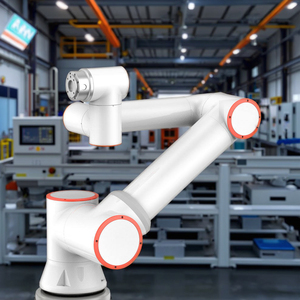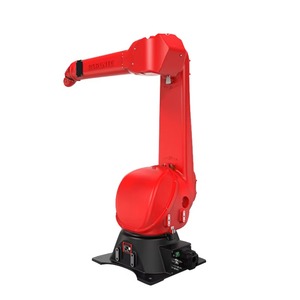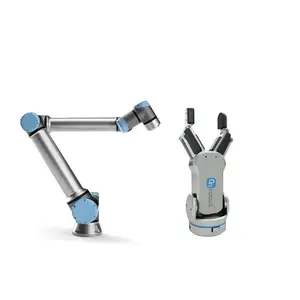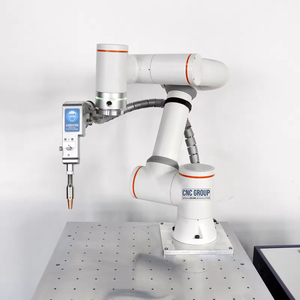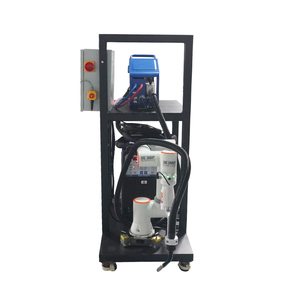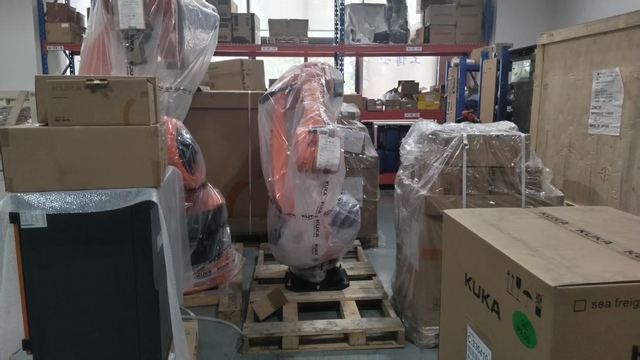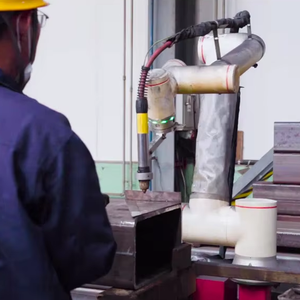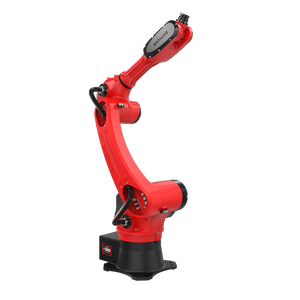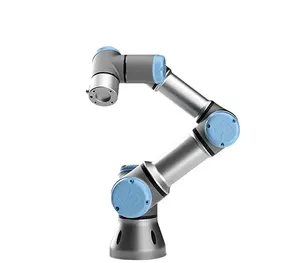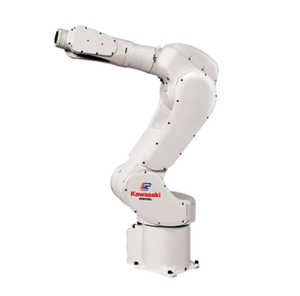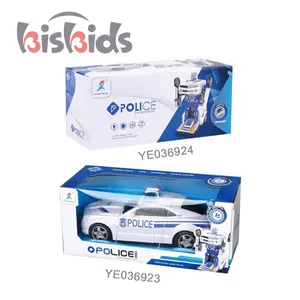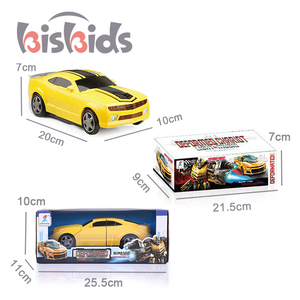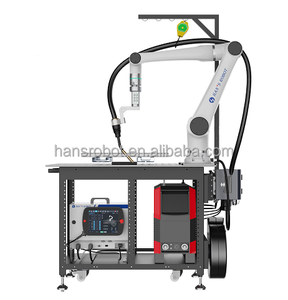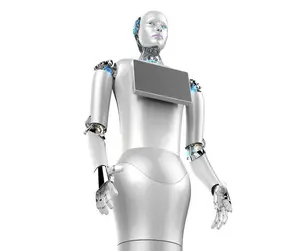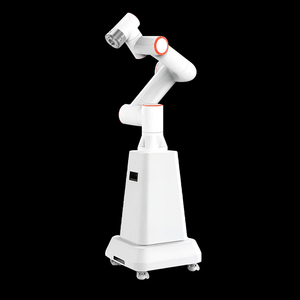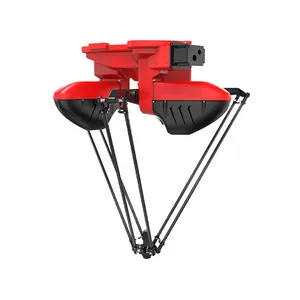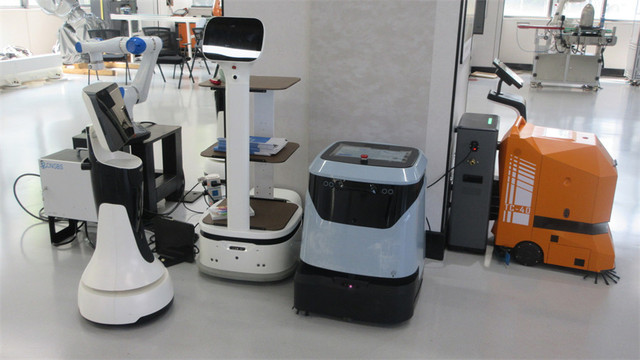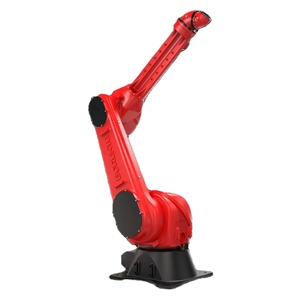Universal Robots Founder



























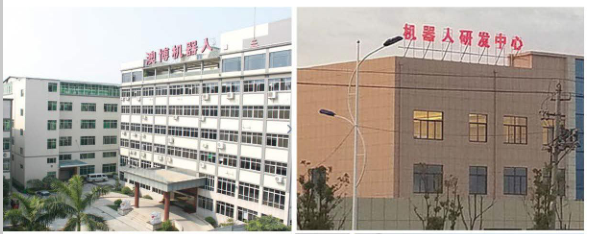

















About universal robots founder
Where to Find Universal Robots Founder Suppliers?
The global supply base for industrial robotic systems, including those associated with universal robot technology and its founding ecosystem, is highly concentrated in China’s advanced manufacturing hubs. Key clusters in Jiangsu, Shandong, and Fujian provinces host specialized automation firms that produce compatible components, articulated arms, and collaborative robot (cobot) platforms inspired by early universal robot designs. Suzhou and Qingdao serve as innovation centers, combining proximity to semiconductor and electronics manufacturing zones with robust R&D infrastructure.
These regions support vertically integrated production networks—encompassing servo motor fabrication, controller assembly, and end-effector integration—allowing suppliers to deliver complete robotic workcells within 45–60 days. The localized availability of precision gearboxes, motion control systems, and aluminum alloy structural components reduces material lead times by up to 30%. Buyers benefit from scalable production capacity, with facilities capable of fulfilling orders ranging from single-unit trials to batch deployments exceeding 100 units.
How to Choose Universal Robots Founder Suppliers?
Selecting reliable partners requires a structured evaluation across technical, operational, and transactional dimensions:
Technical Compatibility & Design Expertise
Verify whether the supplier offers kinematically compatible six-axis articulated robots or cobot derivatives aligned with foundational universal robot architecture. Assess design documentation capabilities, particularly for custom integrations involving vision systems, force sensing, or tool changers. Prioritize companies advertising programmable, fully automatic robotic arms with configurable payloads (5–16 kg typical range).
Production and Customization Capacity
Evaluate core manufacturing competencies through these indicators:
- In-house engineering teams offering line design, arm length adjustments, and magnetic base options
- Customization scope covering color, labeling, packaging, weight, and graphic interface elements
- Minimum order flexibility: several suppliers accept single-set orders, though pricing varies significantly based on volume
- Cross-reference online revenue metrics and product listing diversity to gauge market presence and scalability
Quality Assurance and Transaction Reliability
Demand verifiable performance data, including on-time delivery rates and reorder frequency. While formal certifications (e.g., ISO 9001, CE) are not explicitly stated in available profiles, consistent delivery performance (e.g., 100% on-time records) serves as a proxy for process discipline. Favor suppliers with response times under 2 hours, indicating strong customer service infrastructure. Escrow-based payment mechanisms and platform-backed trade assurances mitigate financial risk during initial procurement cycles.
What Are the Best Universal Robots Founder Suppliers?
| Company Name | Location | Main Products (Listings) | Online Revenue | On-Time Delivery | Avg. Response | Reorder Rate | Price Range (USD) |
|---|---|---|---|---|---|---|---|
| Suzhou JJD Electronic Technology Co., Ltd. | Jiangsu, CN | Articulated Robots (103), Collaborative Robots (65) | US $130,000+ | 100% | ≤5h | 50% | $2,980–4,000 |
| Zhongchuang Automation Equipment (Shandong) Co., Ltd. | Shandong, CN | Collaborative Robots (258), Articulated Robots (192) | US $30,000+ | - | ≤1h | <15% | $17,000–38,999 |
| Hefei Honor Automation Technology Co., Ltd. | Anhui, CN | Industrial Robot Systems, Grippers | US $20,000+ | 100% | ≤2h | <15% | $2,500–18,000 |
| Shandong Rayman Machinery Co., Ltd. | Shandong, CN | Programmable Universal Arms, Cobots | US $40,000+ | 75% | ≤2h | <15% | $4,100–7,500 |
| Xiamen Device Technology Co., Ltd. | Fujian, CN | Other Industrial Robots (355), Articulated Robots (168) | - | - | ≤3h | 100% | $2,098–10,800 |
Performance Analysis
Suzhou JJD stands out with the highest reorder rate (50%) and verified delivery performance, suggesting strong customer satisfaction despite mid-tier pricing. Xiamen Device Technology reports a 100% reorder rate, indicating deep client retention, though its lack of on-time delivery data introduces execution risk. Zhongchuang Automation leads in product breadth with over 250 cobot listings, targeting high-end applications such as UR-compatible welding cells priced above $34,000. Hefei Honor and Shandong Rayman offer extensive customization but vary in delivery reliability—Hefei maintains perfect on-time fulfillment, whereas Rayman reports 75%, a critical consideration for time-sensitive deployments.
FAQs
Do these suppliers offer genuine Universal Robots products?
No. The listed suppliers manufacture industrial and collaborative robots inspired by universal robot architectures but are not affiliated with the original Universal Robots A/S brand. Their products are functionally similar six-axis articulated arms designed for automation tasks such as palletizing, welding, and pick-and-place operations.
What is the typical MOQ and lead time?
Most suppliers list a minimum order quantity of 1 set or piece, accommodating pilot testing and small-scale deployment. Standard lead times range from 15 to 30 days after order confirmation, depending on customization complexity. Expedited builds may be available upon negotiation.
Can I customize the robot arm configuration?
Yes. Multiple suppliers advertise customization options including arm length, payload capacity, color, logo branding, packaging, and control interface graphics. Some provide full line design services for integrated workcell deployment.
Are there quality certifications available?
Explicit ISO or CE certification status is not provided in the dataset. Buyers should request compliance documentation directly, especially for use in regulated markets. Performance indicators such as on-time delivery and reorder rates can serve as indirect proxies for operational reliability.
How do pricing tiers correlate with functionality?
Entry-level models ($2,000–$4,500) typically support 5–10 kg payloads with basic programmability. Mid-range units ($4,500–$8,000) feature enhanced precision and durability. High-end configurations ($17,000+) emulate advanced cobot functionalities, including safety-rated sensors and compatibility with external tooling ecosystems.




